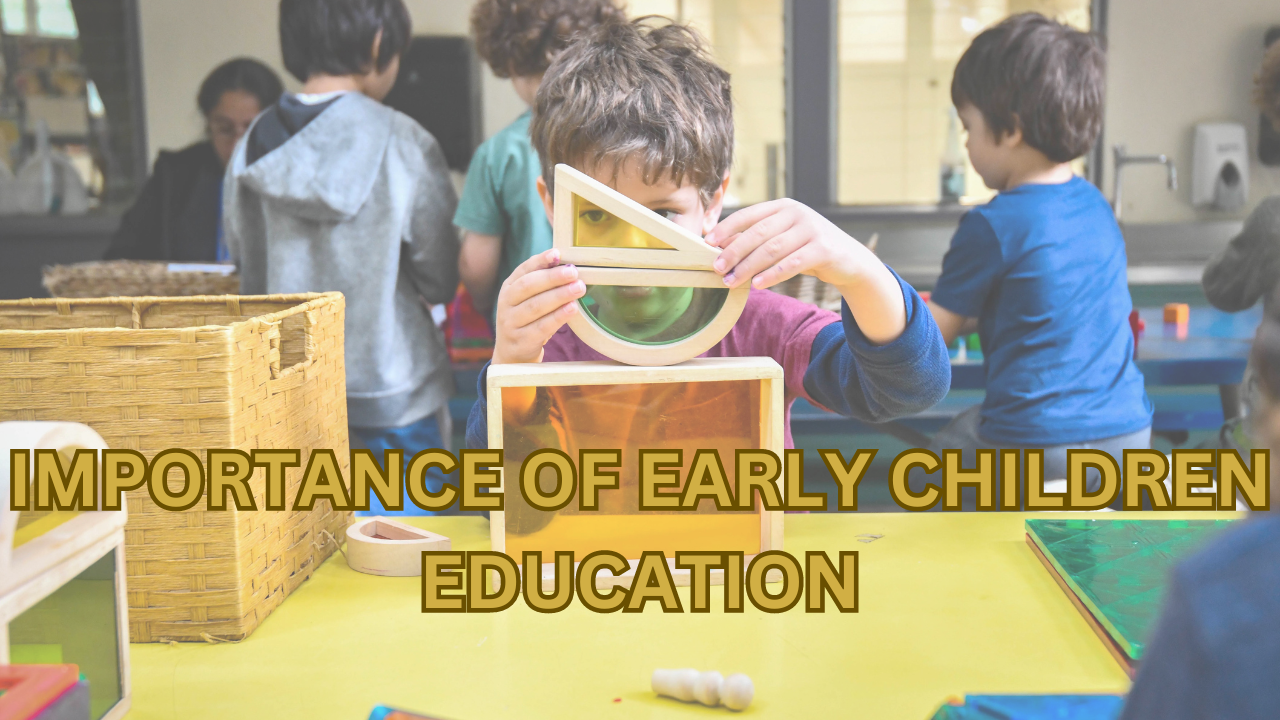ECE (early childhood education) is one of the best investments a country or a family can make to promote Human resource development, gender equality, and social cohesion and reduce the cost of later remedial programs.
For visually challenged children, ECE plays an important role in compensating for disadvantages in the family and combating inequality.
The Significance of Early Childhood Education
Cognitive Development:
In the early stages of the child is a time of fast brain development. By the age of five, a child’s brain reaches about 90% of its adult size. During this period, children are highly capable of learning and acquiring new things. High-quality ECE programs provide stimulating environments that faster cognitive skills such as language, literacy, numeracy, and critical thinking. Activities like storytelling, singing, and hands-on exploration help develop neural connections and build a strong cognitive foundation.
Social and Emotional Growth:
In addition to cognitive development, early childhood education plays a vital role in social and emotional growth. Children learn to interact with other people, develop empathy, and understand social norms. Positive relationships with caregivers and teachers create a sense of security and belonging, which is essential for healthy emotional development. Social skills such as cooperation, sharing, and conflict resolution are cultivated, preparing children for future social interactions and relationships.
Long-Term Benefits:
The benefits of early childhood education extend well beyond the early years. because we taught the children in their childhood about the difference between right and wrong Research consistently shows that children who participate in high-quality ECE programs are more likely to succeed academically, graduate from high school, and pursue higher education. They also tend to have better employment opportunities and higher earnings as adults. Moreover, early childhood education is associated with reduced rates of criminal behavior and improved overall health and well-being.
Key Components of High-Quality Early Childhood Education:
Qualified Educators:
Effective early childhood education relies on well-trained and passionate educators. Teachers with specialized training in early childhood development understand the unique needs of young learners and can create engaging developmentally appropriate activities. Continuous professional development ensures that educators stay current with best practices and emerging research in the field.
Play-Based Learning:
Play is a fundamental aspect of early childhood education. Through play, children explore their environment, experiment with new ideas, and develop problem-solving skills. Play-based learning encourages creativity, imagination, and critical thinking. Structured and unstructured play opportunities allow children to learn at their own pace and pursue their interests.
Family Engagement:
Families play a crucial role in a child’s early education. Strong partnerships between educators and families enhance the learning experience and provide a support system for children. Regular communication, parent workshops, and involvement in classroom activities help bridge the gap between home and school, creating a cohesive learning environment.
Inclusive Practices:
High-quality ECE programs embrace diversity and promote inclusive practices. Every child, regardless of their background or abilities, should have access to quality education. Inclusive classrooms foster a sense of belonging and teach children to appreciate and respect differences. Individualized support and accommodations ensure that all children can thrive and reach their full potential.
Challenges and Opportunities:
Accessibility and Affordability:
One of the significant challenges in early childhood education is ensuring accessibility and affordability for all families. High-quality ECE programs can be expensive, and many families, particularly those from low-income backgrounds, struggle to afford them. Government must work together to develop funding strategies and policies that make early childhood education accessible to all children.
Supporting Educators:
Supporting and retaining qualified educators is crucial for the success of early childhood education. Competitive salaries, professional development opportunities, and a supportive work environment are essential to attract and retain talented teachers. Investing in the workforce ultimately benefits the children they are taught.
Addressing Inequities:
Addressing inequities in early childhood education is paramount. Children from marginalized communities often face barriers to accessing high-quality ECE programs. Targeted interventions and resources are needed to close the achievement gap and ensure that every child has an equal opportunity to succeed.
